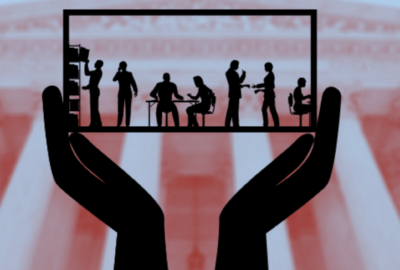Air Force moving to global training perspective
Service\'s new program focuses on giving civilian leaders a broader education of the Air Force\'s mission. The program is funded by Air Force headquarters and a...
wfedstaff | June 3, 2015 12:37 am
By Jason Miller
Executive Editor
Federal News Radio
Civilian managers in the Air Force soon will receive training on par with their military counterparts.
The service is launching a new Civilian Strategic Leader Program in early 2011 to give employees a corporate, or global, education as part of a new approach for managing non-military duties of the Air Force.
“We tried many times over the years to get it right and a couple of years ago we became concerned that some of programs were not hitting their targets the way we wanted to,” says Tim Beyland, the Air Force’s assistant deputy chief of staff for Manpower and Personnel. “A group of senior leaders got together and spent months putting together program that will hit the target. It’s more of a corporate led program at the Air Force level as opposed to what we had in the past that may have been specific to a command or to a functional expertise.”
Beyland says the goal of the new program is not to develop leaders in a vacuum, but offer more breadth and depth of training.
“Our training could be called stovepiped in the past,” he says. “If someone starts out in a particular career field as a GS-5 and they develop you to be civilian leader in that narrow functional area, which there is nothing wrong with that because we need experts, but as you get higher and higher up we start looking for a more diverse strategy leader. We do not want to take away from acquisition or other areas to develop the best people, but expand their knowledge and build broader individuals that we think more closely matches the leadership we expect of our military members.”
Manny Dominguez, a former Air Force and Defense Department senior official in charge of personnel and readiness, calls the Air Force’s new program a “bold and breathtaking change.”
Dominguez, now the director of the strategy, forces and resources division at the Institute for Defense Analyses, says the Civilian Strategic Leader Program is the only one in government where senior leaders are being given training on from a global perspective.
“I see some very unique attributes to this system,” he says. “It is Air Forcewide, the senior leaders designed the program to encompass every civil servant in the Air Force who wants to be included in this program and it is funded by Air Force headquarters so it is not subject to available of funding at local level.”
He adds that the fact there is a senior executive in the Air Staff headquarters who is the senior manager of the career field also is a huge benefit for the long term success of the program.
“The next thing is to think about where it makes sense to be interchangeable with people in uniform so civilians can substitute in areas usually done by people in uniform when necessary,” Dominguez says. “The program can focus on what civil servants need and the leadership experience is a big piece of that. It is a huge challenge to bring civilians to the level of military leadership training. I think making them mirror images is the wrong answer and not what the program is about.”
The Air Force program will have three distinct areas: leadership experience, education and other development assignments, where civilian leaders would work in different experiences including possibly joint commands.
Beyland says his office also is considering a fourth part, which may focus on training for GS-14-15s that normally is given only to Senior Executive Service members. There are about 6,500 civilian executives in the Air Force, the service says.
“We already expect them to be proven and solid leaders,” Beyland says. “This is putting them in key leadership jobs where they can exercise the leadership qualities they have and develop better and more qualities, while also expanding the breadth of their experiences.”
Dominguez adds that by having support at the highest areas of the Air Force bodes well for the program’s development.
“To have this global service managed, directed and led by senior executives and to have the money to operate this program, which is not just training, but an experience program, is huge,” he says. “This program will give civilians experience at different Air Force bases and then they will be rotated to another command. And to have that then financed by headquarters because they are saying we are global service is so important.”
Over the next few months, Beyland’s office will hold information sessions around the country to promote the program.
Beyland says interested civilian leaders should talk to their supervisor or mentor about applying.
“We will start the process to identify potential candidates and a review board will process the candidates in late August or early September,” Beyland says. “You will be invited to participate in this program. The Air Force Personnel Center in San Antonio has career field teams who will make contact with interested employees and review their applications.”
He adds that the Air Force will start with 20-to-30 students in the first year of the program, around January 2011.
Beyland hopes to increase by 20-to-30 each year over the next three years to have about 90 people in the program when the first group graduates.
“We want to build a continuum of training and education so they know their expectations,” he says. “If we don’t do that, we will not have a cadre of leaders that we need to help lead the Air Force in the future.”
(Copyright 2010 by FederalNewsRadio.com. All Rights Reserved.)
Copyright © 2024 Federal News Network. All rights reserved. This website is not intended for users located within the European Economic Area.





